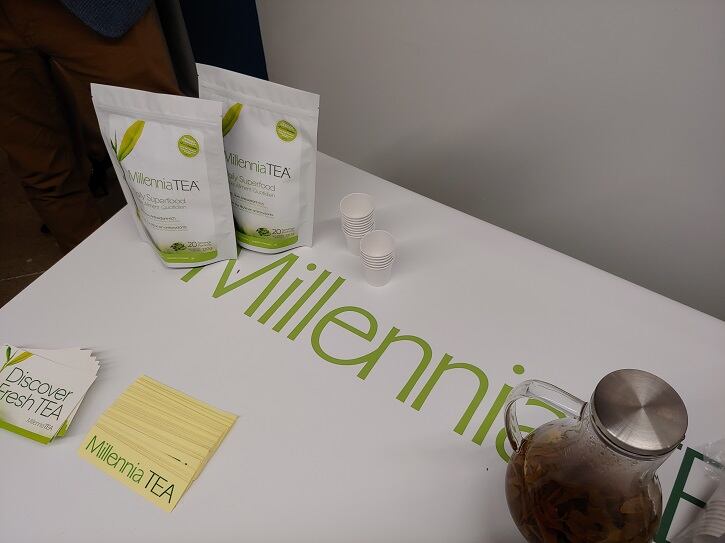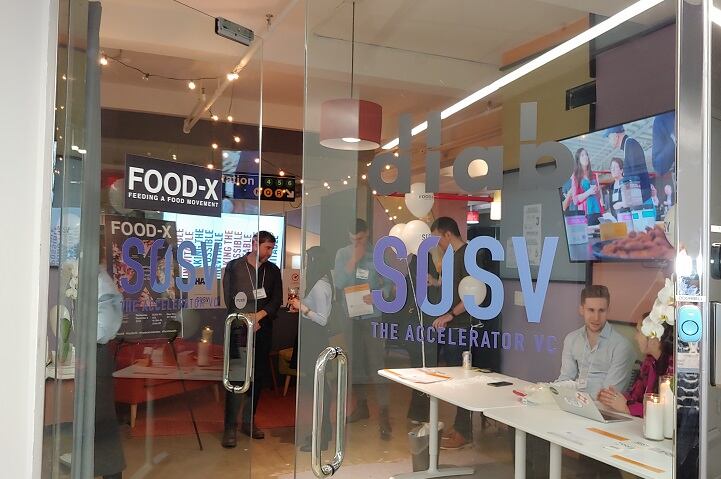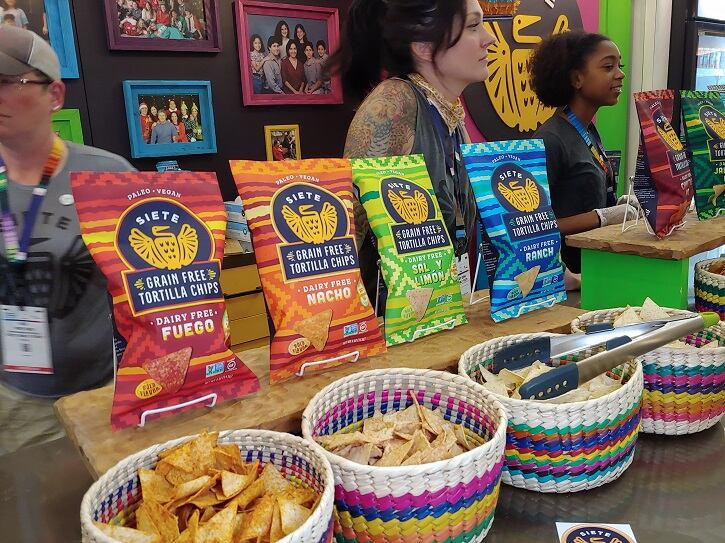“Up to 90% of products in the [non-dairy milk] market delivery similar things. The protein content is between [1-3 g], they tend to have a lot of fillers and also they are not complete solutions. So, we look to be the opposite of that,” Marie Amazan, the CEO and co-founder of YoFiit, told FoodNavigator-USA during SOSV’s food accelerator Food-X’s recent demo day in New York City for its tenth cohort.
She explained that YoFiit’s goal is not to create the next oat or almond milk, because the non-dairy milk category is saturated with single star ingredient options. But rather, she said, YoFiit’s patent-pending miylk10 plant-based milk aims to offer consumers a nutritionally dense, clean-label option that can stand out from the competition and help fill a void in the market.
“We start with chickpeas, flax seed and peas … to deliver a more optimal nutrition” profile that delivers not only 10 times more protein than almond milk, but also has a better health benefits than 1% dairy milk, Amazan said.
“When you look at 1% cow’s milk, as an example, we are giving you something very similar and better in some cases. So, our protein is 10 vs 8, our fat is the same as 1% cow’s milk, but instead of cholesterol it is omega-3. And cow’s milk naturally has a lot of sugar from lactose, and we have zero grams of sugar and our net carb is only 2 – so our nutritional panel … meets the needs of someone who is looking to switch from cow’s milk and still get the same level of nutrition or even better,” she said.
“The other thing we also eliminated … is the use of thickeners, and that is something our customers love. The love the fact that it is a very light product. They don’t feel any gumminess and in terms of application,” it still behaves well in recipes, she said.
The plant-based milk segment isn’t the only crowded category where YoFiit sees room for improvement – the brand also has a line of nutritional bars, which like its beverages, focus on plant-based nutrient density to help solve some of the biggest health risks facing consumers today.
“On the bars, we really are attacking big health problems. We know sugar is a massive issue,” which is why YoFiit’s bars have low sugar and instead are high in fiber, protein and probiotics, she said.
Discovering what makes the American consumer ‘tick’
While having a standout product is a good starting point, it alone often isn’t enough to guarantee a startup’s success, warns Amazan. She explains that entrepreneurs also need to have a deep understanding of the category and market they are entering, which for Canadian-based YoFiit meant teaming with SOSV’s food accelerator Food-X to better understand what US consumers want.
“We knew we wanted to launch in the US at some point, but we needed a better roadmap,” Amazan said. “With Food-X, what we were able to do is really be in New York for three months, go into retail stores and talk to a ton of retail outlets … to get their feedback about the product and … understand exactly what will make the American consumer tick,” she said.
Her research revealed that American consumers are less likely than Canadians to read closely the Nutrition Facts panel and labeling, so YoFiit needed to more clearly call out on packaging the nutritional value of its products.
She also discovered that the claims that resonate well with Americans include free-from fillers, gums, sugar and unfamiliar ingredients, high in protein and, of course, plant-based.
Now that Amazan has a better idea of how to navigate the US market, she says the brand plans to launch in America in 2020. The first few months of the year will be dedicated to testing the products in strategic locations and measuring velocity. If necessary, she said, the brand will make adjustments based on what it finds, but the ultimate goal is to launch and scale across the US starting in June.



